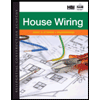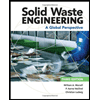
Find the power radiated by a woodstove.
Answer to Problem 1P
The power radiated by a woodstove is
Given information:
The size of the woodstove is
The surface temperature (T) is
The emissivity
Calculation:
Find the surface area of the woodstove.
Convert the surface temperature from Degree Celsius to Kelvin:
Consider the Stephen Boltzmann constant
Find the surface radiation (P):
Thus, the power radiated by a woodstove is
Explanation of Solution
Given information:
The size of the woodstove is
The surface temperature (T) is
The emissivity
Calculation:
Find the surface area of the woodstove.
Convert the surface temperature from Degree Celsius to Kelvin:
Consider the Stephen Boltzmann constant
Find the surface radiation (P):
Thus, the power radiated by a woodstove is
Want to see more full solutions like this?
- 6:31 mi Official International Websit maserati.com/global/en Maserati 66 Continue without Accepting Maserati By clicking "Accept All Cookies", you agree to the storing of cookies on your device to enhance site navigation, analyze site usage, and assist in our marketing efforts. Accept All Cookies Cookies Settings INTRODUCING THE ALL-NEW MASERATI GranCabrio DISCOVER MORE > 1/5 Oarrow_forwardJOB UPDATE QUALCOMM FULL STACK DEVELOPER ASSOCIATE INFOR (FRESHERS) IBM QUALITY ENGINEER DATAVAIL DATABASE ADMINISTRATOR INTOUCH CUST SERVICE (CHAT/EMAIL) ACCENTURE Vinkjobs.com #vinkjobs CUSTOMER SUPPORT Search "Vinkjobs.com" on Googlearrow_forwardHello, I would like to ask if the answer provided in this link is correct based on the floor plan shown in the attached pictures? Kindly verify if the solution matches the actual layout and measurements. Thank you! https://www.bartleby.com/questions-and-answers/i-need-help-estimating-the-required-materials-for-masonry-works-using-chb-in-a-2-storey-residential-/bdb70948-ded3-4461-9057-f63a7a1c5f8farrow_forward
- Structural analysis question Cleary explain each step with appropriate solviarrow_forwardAn activity on a non critical path has a total float of 16 days and a duration of 5 days. The start of the activity is delayed by delivery of material for 12 days. A worker shortage makes the activity take 12 days. How far behind the original critical path schedule are you? b.3 days a.0 days d.4 days c.4 days aheadarrow_forwardPlease answer the two questions in detail and as best as you can. Please ensure it is 100% done by human, please do not use AI or chatgpt.arrow_forward
- Please answer the two questions in detail and as best as you can. Please ensure it is 100% done by human, please do not use AI or chatgpt.arrow_forwardPlease answer the two questions in detail and as best as you can. Please ensure it is 100% done by human, please do not use AI or chatgpt.arrow_forwardPlease answer the two questions in detail and as best as you can. Please ensure it is 100% done by human, please do not use AI or chatgpt.arrow_forward

 Engineering Fundamentals: An Introduction to Engi...Civil EngineeringISBN:9781305084766Author:Saeed MoaveniPublisher:Cengage Learning
Engineering Fundamentals: An Introduction to Engi...Civil EngineeringISBN:9781305084766Author:Saeed MoaveniPublisher:Cengage Learning Residential Construction Academy: House Wiring (M...Civil EngineeringISBN:9781285852225Author:Gregory W FletcherPublisher:Cengage Learning
Residential Construction Academy: House Wiring (M...Civil EngineeringISBN:9781285852225Author:Gregory W FletcherPublisher:Cengage Learning Solid Waste EngineeringCivil EngineeringISBN:9781305635203Author:Worrell, William A.Publisher:Cengage Learning,
Solid Waste EngineeringCivil EngineeringISBN:9781305635203Author:Worrell, William A.Publisher:Cengage Learning, Sustainable EnergyCivil EngineeringISBN:9781133108689Author:Richard A. DunlapPublisher:Cengage Learning
Sustainable EnergyCivil EngineeringISBN:9781133108689Author:Richard A. DunlapPublisher:Cengage Learning Materials Science And Engineering PropertiesCivil EngineeringISBN:9781111988609Author:Charles GilmorePublisher:Cengage Learning
Materials Science And Engineering PropertiesCivil EngineeringISBN:9781111988609Author:Charles GilmorePublisher:Cengage Learning





